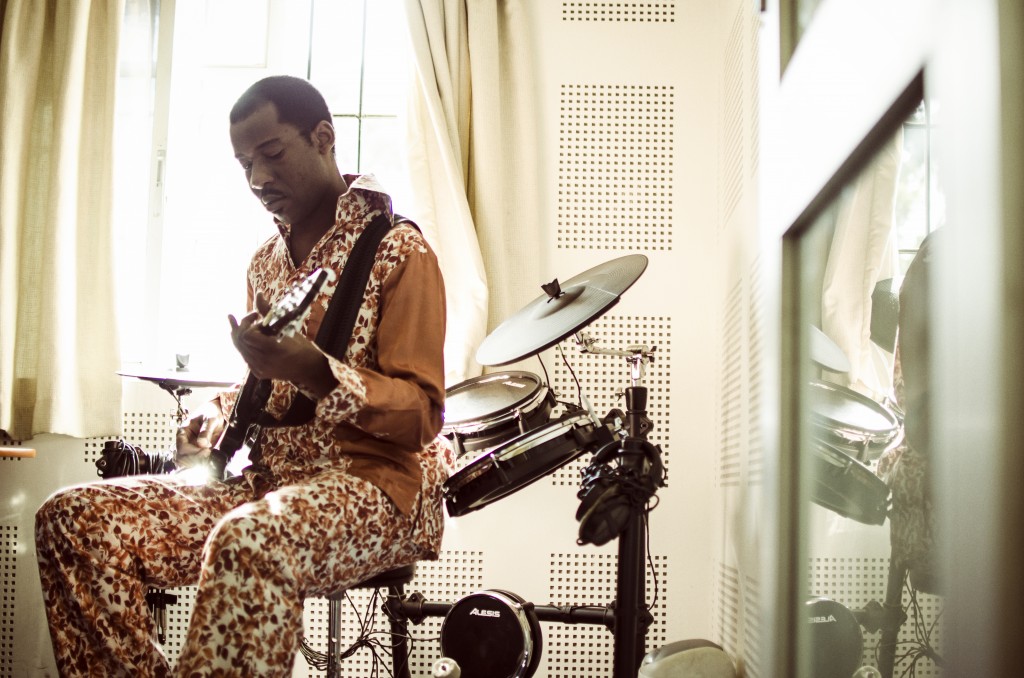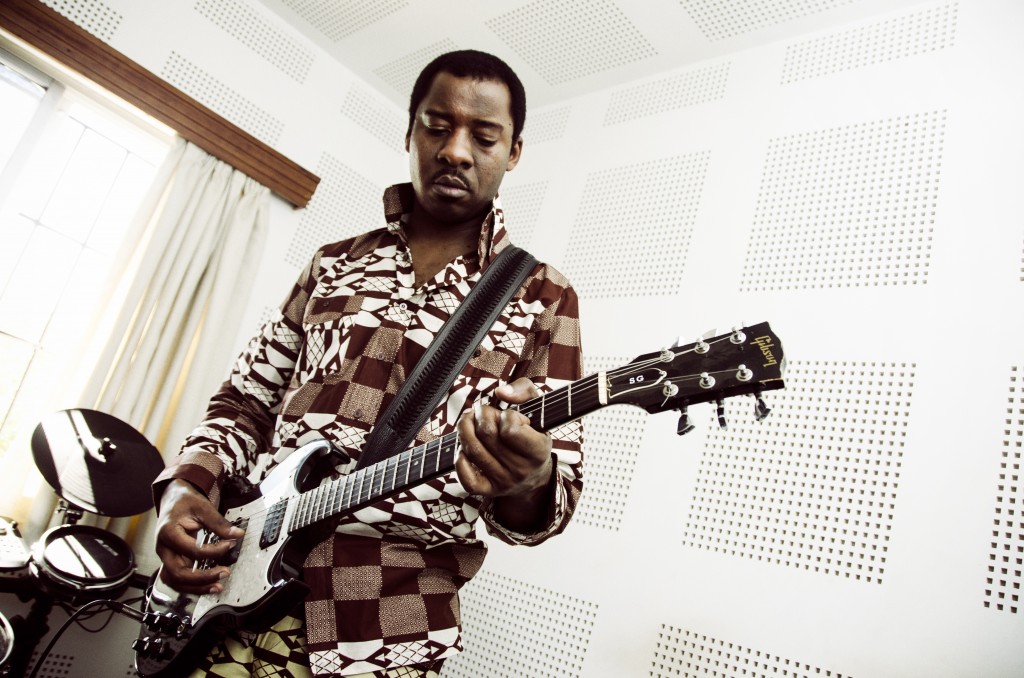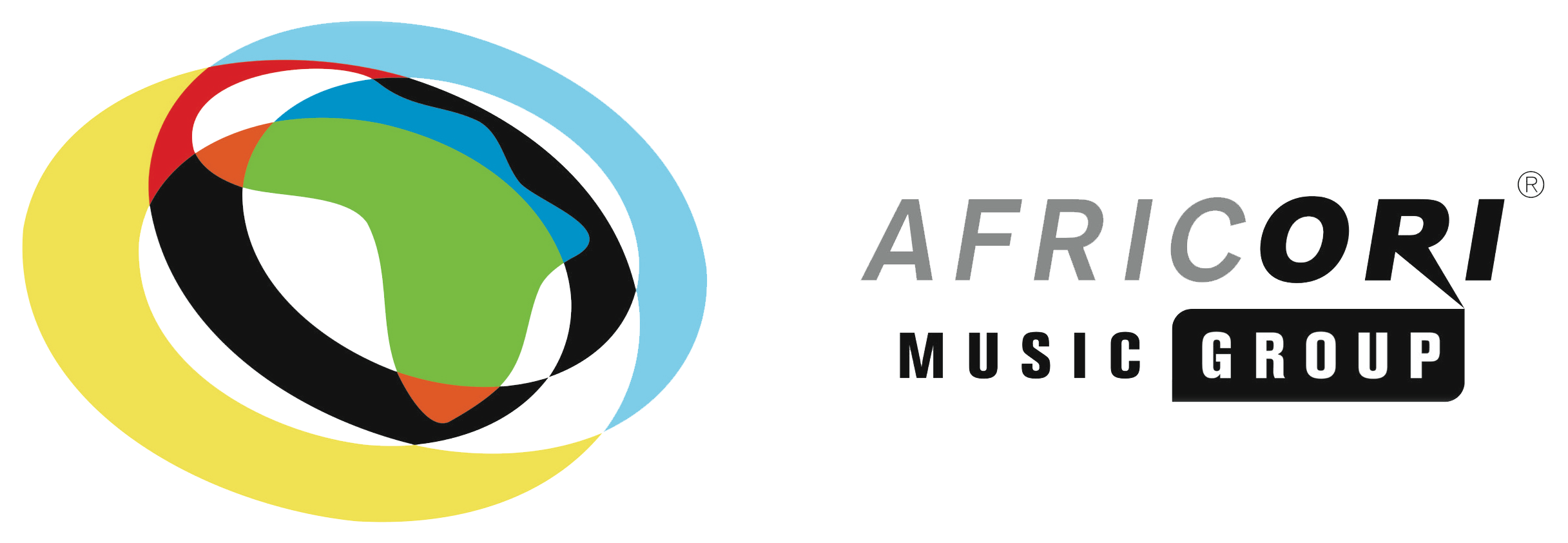21 sept. In conversation with: Franck Biyong
Franck Biyong’s new single paves way for an Afrolectric invasion, ‘Liyomba Church’ opens with high-energy screeches and thumps that won’t let you go. It is a fervent and unabashed call to dance. It is also the first single off Cameroonian creative Franck Biyong’s upcoming 11th album, “Moonwatching 2”.
Franck is a child of many worlds but is anchored to none. The 42-year-old instrumentalist, singer and composer grew up in Gabon, Nigeria and Ivory Coast before heading to the UK at age 14. Franck’s musical instincts were awoken in a Baptist household and sharpened by Rock n’ Roll.
The electric guitar would later become his tool of trade.
Ahead of the release of ‘Liyomba Church’, we sat down with Franck to dig deeper into his career, recent projects and upcoming news.
Congratulations on the completing the Liyomba Church release, how did you come up with the concept for the release and does it directly relate to the your 11th studio album ‘Moonwatching 2’?
Thanks! The main idea behind the LIYOMBA CHURCH concept comes from the need to explore other musical territories that have been left unexplored by African Musicians these past decades. Back in the 1970’s and even early 1980’s, African artists and bands weren’t afraid to draw influences from wherever and were willing to incorporate new sounds into their modernized versions of their traditional music
and folklore. You could hear psychedelic, distorted or fuzz-like guitar sounds on records from Malian, Congolese, Guinean or Cameroonian orchestras (and many other African acts of the time) and it sounded and felt natural because these was a real sense of self-pride, confidence and integrity that moved and guided the Artistic production of the time. Unfortunately for us, world music came along a ruined all of that by focusing mostly on the fusion of African sounds with the technological advancement of the day (which really wasn’t the cleverest idea looking back) or the stereotypical aspects that could be promoted and pushed forward in African music, meaning: African Music = Dance…which is definitely not true.
Well, there is a subtle link between the release of the forthcoming full-length record and this single, mostly hidden in the lyrical content. Lots of ceremonies (and social activities designed to unify the community around common beliefs) are taking place at night in African rural life (therefore the importance of the Moon in Cameroonian, Basaa and most African cultures). My Ancestors
certainly weren’t playing Rock N’ Roll, but at least there is a thread that can be followed if
one is interested in knowing why we are attempting to do this!!

What else have you been up to lately and what have you got in store for the year ahead?
Well, you know that Frank Zappa album “Studio Tan”? I guess that’s what I’ve been doing!!
More seriously, we all know how f…ed up the Music industry is right now…Everyone acknowledges
it, every artist (even the biggest names) suffers from it and there isn’t much to be done about the
actual structure of the industry which is literally still living off the leftovers of the golden age of
cd sales : A bit like we knew that “pop would eat itself”, we now know that new laws have to be written and conceived by those who still have the will to work and perform as musicians in the years or decades
to come. Serious musicians now have to work twice as hard and produce twice as much material just to remain relevant or to offer an alternative to the present day status quo. I honestly do not care much about the commercial performance or critical reception of the music that I work on. I’m more concerned with renewing the musical proposition every single time to keep things exciting for myself and for the people who happen to be interested by these records. We are launching a new project with an orchestra called ORCHESTRE LIPOMBE JAZZ, and we have 2 albums in the making: One will focus of traditional percussion and chants: the other one will be a tribute to the great orchestras that were prominent
in the 1950’s and 1960’s (the AFRICAN JAZZ led by Joseph Kabasele being the ultimate reference
as the cornerstone for modern African Music). Simultaneously, we will release the 2nd part of the
MOONWATCHING album focusing on rock songs and recorded with a power trio group followed by
2 EPs (“Struggle 4 Money” and “Evening Prayer”) which are way more experimental, psychedelic
and guitar heavy. I’m hoping to have all this music out before summer 2017…
Apart from music what else are you passionate about?
I have always been passionate about contemporary history and I would certainly have embraced
the career of a lecturer or university teacher had I not been a Musician. I spend most of my spare time
with knowledgeable African elders who accepted me as their protégé since they consider that I may be
“able” to push things forward a bit in artistic terms. So, I am mostly completing my education by studying diverse topics in their company. Can’t really disclose more than what I’m revealing here, but they taught me that Music does not fulfil all spiritual or intellectual needs…With that idea in mind, I’m trying to broaden my knowledge about various topics, to remain as humble as possible and to keep on learning
If you could pick three artists to collaborate with on one single project, who would they be and why?
Strangely enough, I would choose to collaborate with legendary Artists from the older generation.
One would say that this is again going against the grain, but in other music genres (Jazz, Afro Cuban Music or even Rock), there is a strong sense of hierarchy, filiation and back and forth collaborations or exchanges between Artists belonging to younger and older generations. We kind of lost that as African Musicians, and that blind race towards the dictatorship of modernity does not necessarily benefit us:
It is almost impossible to name a young rock British act that has never heard of The Beatles, The Kinks or The Who. Most young African Artists are totally clueless about the great music that was produced in their hometown 30 or 40 years ago, and even true electronic music pioneers like Francis Bebey from Cameroon or William Onyeabor from Nigeria are virtually unknown to the hippest Djs or producers living on the African continent, which is a real pity. I would choose to collaborate with Pierre Akendengue from Gabon, Ray Lema from DRC. I would also hire a full Orchestra and then intend to write an ambitious music piece that would be challenging enough so that these Gentlemen feel comfortable enough to contribute musically and bring forth their knowledge and experience on board. My first choice would have been Francis Bebey, but he left us in 2001, unfortunately. Why would I choose to work with them? Well, these Gentlemen have been the true innovators and scientists in African Music and Musicology for the past 30 years. Their oeuvre is incredibly diverse, complex, profound and sensitive all at the same time. They are the last men standing there to give us an insight about that African Artistic Romanticism we have lost on the way and, I am, in all modesty, trying to get a bit of hold on that.

How have you found the service with Africori and how have Africori helped your music career to date?
AFRICORI is a brilliant idea and a unique platform for African Music and Artists. Such a Music label and organization did not really exist 10 years ago, and it represents a true opportunity for African Music to reclaim its throne, only if the Artists’ creativity is limitless and free, has historical roots, and relies on knowledge, perspective to develop, grow and establish true connections with the African American, Cuban, Brazilian and Asian artists. I have been working with AFRICORI for the past year and I’m looking forward to new developments and to expand to other markets and territories, even though the feedback might me modest or slow at first.
Which artists would you identify as your main influences and which current artists do you find inspiring?
Hum…That is a tough question…It depends on the style, the era…Some are composers, some are instrumentalists, others are bandleaders, orchestra conductors…You can’t really put all of them in
the same bag…But I will name the musicians I admire the most: The greatest Musician that ever lived
is (in my humble) opinion Francois Luambo Makiadi better known as Le Grand Maitre Franco from (DRC). Just don’t get me started about him! I might write a 400 pages book just to talk about his compositions, another book just to talk about his guitar playing and a third volume to now discuss his mastery as a bandleader and conductor. He is the Genius of the Geniuses…and we haven’t even started to study his oeuvre the way it should be done…My favourite band is the Bembeya Jazz National from Guinea,
quite probably the finest ensembles ever…The Demba Camara era was absolutely fantastic as they wrote epic poems and compositions narrating the history of great African leaders or the post colonial revolutionary years…Sekou Diabate is a true guitar wizard (like Kante Manfila and Ousmake Kouyate from les Ambassadeurs du Motel de Bamako who also are great influences of mine) and the second golden age of the band with singers Salifou Kaba, Moussa Traore and Mory Kouyate (dubbed the
“bazooka” trio) was truly unique…If we are to talk about Rock now, Jimi Hendrix was the most expressive musician there was…And I’m not talking about his prowess on the guitar so much…His compositions, lyricism, poetry, mastery of the blues and abilities as an improviser is what impresses me the most when
I think about him…And he was the sole Rock musician who, like a classical composer, could express emotions, feelings or paint pictures of the world he was living in with sound…All the other ones were just building their careers (and you cannot blame them for that…)…The current musician that really inspires me is Wynton Marsalis…He kept the Jazz, swing and Blues tradition alive, nurtured it and literally installed Jazz in he Symphony hall for good…He is a true master: master trumpeter, master composer, great teacher…He is a role model for me…I always keep him in mind when I think about where African music should head towards in the future…
African artists are making waves globally, why do you think African music is becoming more prominent now?
Well, things are pretty lame in the rock and pop world at the moment, that’s one reason for sure!!
I think the quality of African productions, both visually and musically has drastically changed and got better and better during the last decade. That is of course a plus and you hardly can tell the difference between a Nigerian video or hit song and its American R & B or Hip Hop counterpart nowadays. US based producers are obviously in search of new sounds, a fresher approach and they can see there’s a connection between a lot of Afrobeats producers’ work and the latest trends in hip hop (trap etc…)…
The FELA! Musical that was a Broadway show a few years ago certainly helped to put Africa on the map in authorized circles and networks of the American entertainment industry. I am less enthused with the result and artistic directions I see who tend to again focus solely on the performance aspect that exists in modern African music, but that’s a start at least…I still remember the days where I would mention Afrobeat or great African Musician’s names and no one had even heard of them in Europe or America…
And that was just 10 years ago…So, there is progress…Let’s consider this was step one and that now
we’re approaching to the second stage where things should get serious, expand and never turn back…
https://www.youtube.com/watch?v=_yn1vl8KwEU
Which developing new artist are you most excited about and why?
Oh, there are a lot of great talents in every African country…East, West, Central or South Africa…
You name it…I was fortunate enough to collaborate with many of them these past 3 years on the first
two seasons of the Coke Studio Africa TV show and I attempted to bridge the generation gap by working alongside with them…Hip hop obviously has a tremendous influence on African youths all across the continent and it influenced urban styles that evolved to incorporate more and more electronic music elements…There are also a lot of brilliant young instrumentalists who received formal training in the numerous protestant and Baptist churches that exist in every single sub-Saharan African country…Africa is literally overflowed with talent and musical abilities…Now’s the time has probably come to structure things and to create true platforms and academies so that African Music enters its second classic age and imposes itself to the world like Jamaican Reggae or Afro-Cuban Rumba did in the 1960‘s and 1970’s…
If you could perform at any venue or destination in the world, where would it be and why?
In Africa, I would love to play a huge stadium in any major city to celebrate our unsung heroes with a
line up of Artists of the Younger generation…All the great African artists in the 1970’s played stadiums whenever they travelled on the continent…As a youngster, I was lucky enough to witness a few big stadium shows in Ivory Coast…I have only wanted to be a musician ever since… In the west, my choice
would be the Summerstage in Central Park, New York…I played the S.O.B’s years ago and I promised myself then I would perform that festival one day…In Asia, I would love to play the Niigata Fuji Rock Festival in Japan…Every video I saw of concerts there just looked and sounded amazing and audiences generally have a true and heartfelt respect for the Arts and Musical spirituality in particular…
Until then, let’s wait and see…


Désolé, le formulaire de commentaires est fermé pour le moment.